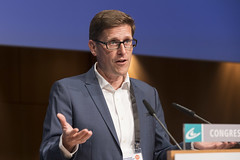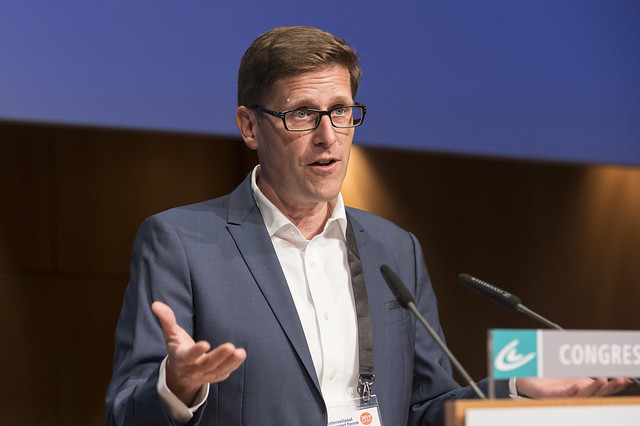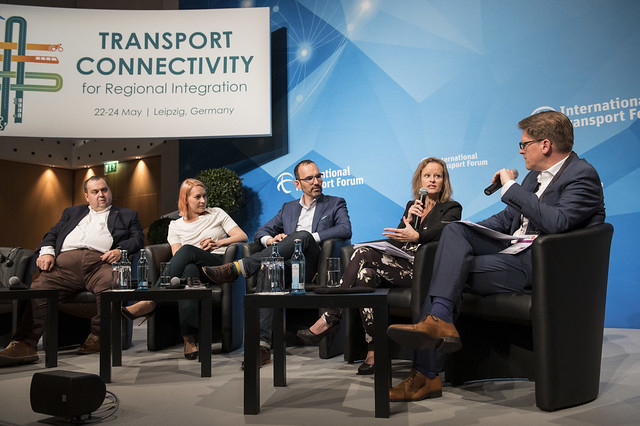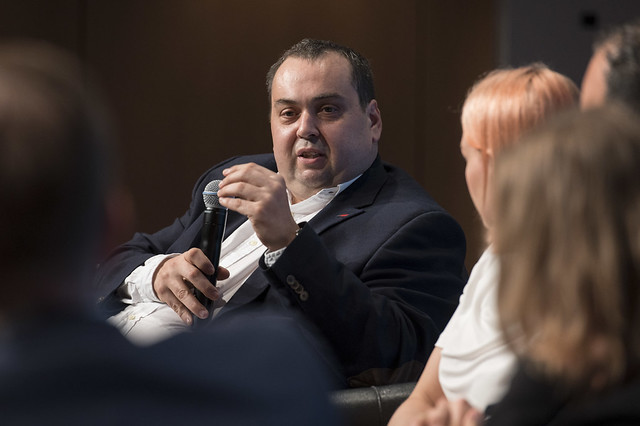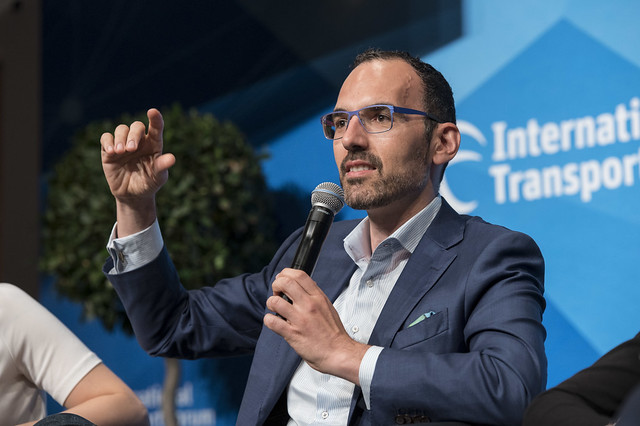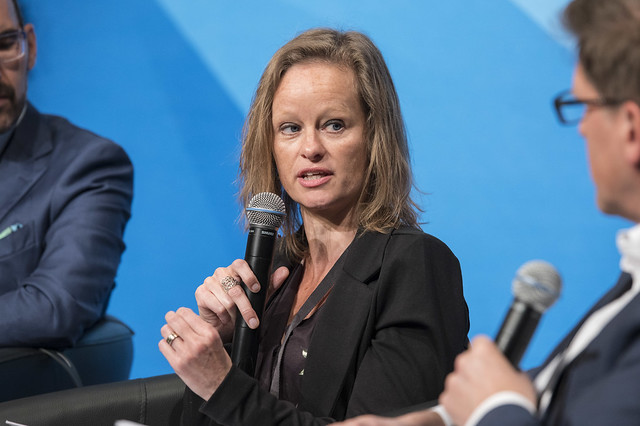This session brought four thought leaders in the field of integrated mobility to discuss Mobility as a Service (MaaS). MaaS has the potential to improve transport outcomes. This is because transport faces an enduring paradox – at peak hours and in the busiest areas, our cities and networks are both congested and awash with unused capacity. Against this backdrop are people who simply want to get from point A to point B in the most responsive, flexible, reliable and affordable way. As in other areas of their lives, users want to have the option to choose the most convenient ways and value their trip experiences. In the past, transport services tended to fail to consider these user perspectives.
MaaS opens the possibility to re-center transport around travelers’ needs. MaaS digitally joins up different transport, information and payment services into a smooth and reliable customer-driven experience. Many hope this will deliver less congestion, better environmental performance, more equitable access and better transport options to individuals. Early evidence from the Whim MaaS service in Helsinki seems to support this hope. Nonetheless, Karen Vancluysen cautions that our experience with MaaS is still very much in the early stages and will depend on local context and implementations.
There was little consensus from the audience or the panel on what MaaS is. According to MaaS alliance, MaaS is the integration of various forms of transport services into a single mobility service, accessible on demand. It requires infrastructure, partnerships, data standards, but most importantly, it should be developed as an open eco-system. The exact definition may not matter as long as the MaaS ecosystem provides a predictable environment that encourages seamless travels.
Who should lead MaaS? The panel distinguished between ownership and oversight. In the urban context, Paulo Humanes emphasised that MaaS works only when there is high-capacity public transport. While all discussants agreed on this, not all agreed on that public transport operators should be the sole, or even the main, orchestrator of MaaS. Public authorities may not be the best placed to develop solutions, but should oversee them. The private sector should feel welcomed to provide new services and be given clear guidance on how they can contribute to public policy goals.
Technology is not a barrier to achieve scale. Timothy Papandreou pointed out that missing elements like a common data syntax can increase the uptake of MaaS but the main barriers are related to mindsets of potential MaaS participants and the regulatory environment. Bringing together participants around shared guiding principles can help overcome mistrust amongst actors. In the case of regulatory barriers, these may exist at different levels of government from the local to the national. Recognising this, Finland has taken the initiative to completely rewrite their transport code to make it MaaS-friendly at all levels.
Missing elements that could facilitate the uptake of MaaS include the adoption of open electronic payment systems by public transport operators, rendering regulatory language machine-readable, improving the digital skillset of public authorities and putting in place a fair and operator-neutral pricing framework. Krista Huhtala-Jenks warned the audience that not all barriers to MaaS are necessarily large or visible. Adding a single click to a MaaS onboarding process can drop enrollment by 30%. This served as a reminder on the importance of keeping user perspectives front and centre in MaaS.





